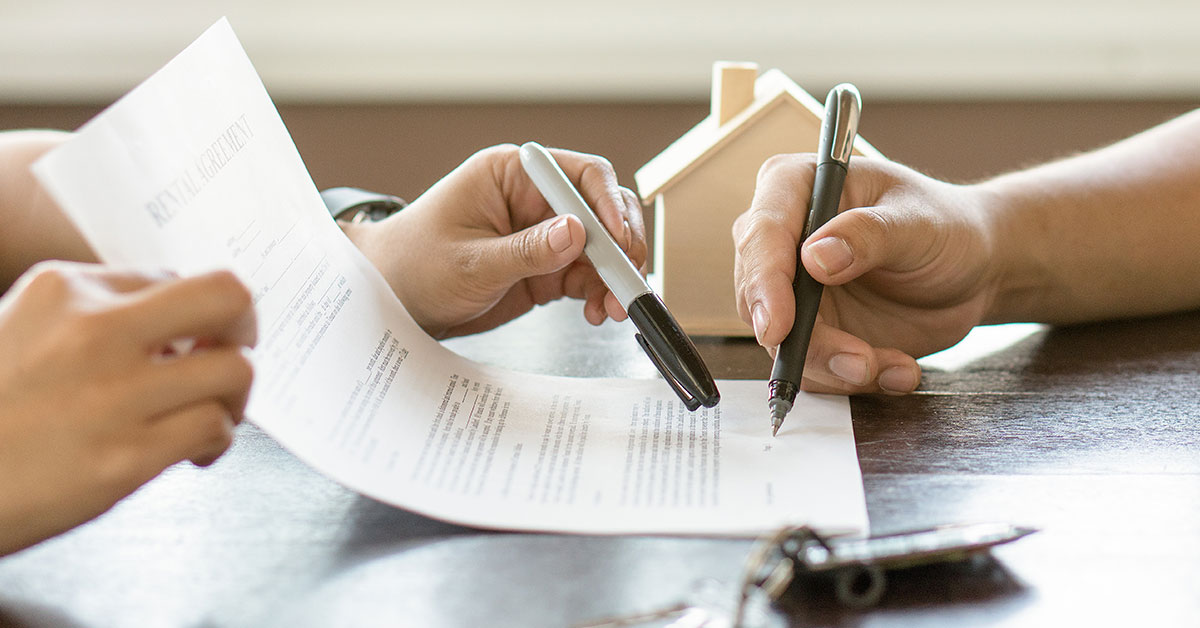
Mortgage Forbearance - A Great Option to Consider
Updated 6/20/2025
Are you having a hard time paying your mortgage as a result of a hardship? If so, you’re not alone. Fortunately, you can request protection from missing mortgage payments by applying for mortgage forbearance.
What is Mortgage Forbearance?
A mortgage forbearance plan suspends or reduces the amount of regular monthly mortgage payments. It generally allows the homeowner to make lower monthly payments or no payments at all, for a set time. It’s important to realize that a mortgage forbearance is not loan forgiveness, so the delayed or lowered payments will accrue and need to be paid back according to the terms of the mortgage.
Benefits to Mortgage Forbearance
.jpg)
A mortgage forbearance can be a great option if you’re experiencing financial trouble due to an unexpected event such as a job loss, illness, or natural disaster. You could have the opportunity to reduce your mortgage payments or stop making payments, which can give you the flexibility to get your finances to a more stable place.
How Does Mortgage Forbearance Work?
Mortgage forbearance allows you to stop making payments for a set period of time. There are usually three options borrowers can choose from, for when forbearance ends. These are:
- Paused payments paid back when forbearance ends. This option will require you to pay a lump sum when payments are due again. Interest could accrue until the paused amount is repaid.
- Paused payments are added onto the end of the mortgage, or you take out a new loan. This option can extend the term of your mortgage loan.
- Your mortgage servicer allows you pay a reduced payment for a set period of time. The remaining amount is repaid by increasing your monthly payment over a designated period until the amount is repaid.
Mortgage Forbearance Effect on Credit Scores
Will mortgage forbearance have an effect on your credit score? As long as you comply with the terms of the forbearance agreement, the short answer is no. If you have an approved forbearance agreement from your mortgage service provider, there should be no negative impacts on your credit scores when you miss a payment or only partially pay. However, it is important to note that any late payments before the agreement takes effect can be reported by your mortgage service provider to the credit bureaus, which can hurt your credit scores.
Also be aware that if your mortgage is noted in forbearance, other lenders my see this as a risk against your credit worthiness. It is also important to note that interest can still accrue, and your payments will be higher for a period of time after forbearance ends. This can have a temporary affect your credit score, but making regular, on-time payments will help raise your score. Before entering mortgage forbearance, ask what your lender's policy is for reporting mortgage forbearance to credit bureaus.
The CARES Act and Mortgage Forbearance
During COVID-19, The Coronavirus Aid, Relief and Economic Security (CARES) Act protected borrowers, but was only for missed or lowered payments while under the forbearance agreement. In April 2023, President Joe Biden signed a bipartisan congressional resolution to end the nation’s COVID public health emergency, which signaled the end of the pandemic forbearance program.
The CARES Act did NOT cover borrowers with privately-owned mortgages.
How to Apply for Mortgage Forbearance

To apply for mortgage forbearance, reach out to your mortgage lender as soon as you can. Don’t wait until you’re already missing payments. Keep in mind that mortgage forbearance is not a legal right, so lenders will grant forbearance at their discretion.
Mortgage lenders will often request information when considering your case:
- Your most recent mortgage statement
- Proof of income or an estimate of current monthly income
- An estimate of monthly expenses, including all debt payments
- An explanation of your financial hardship (and any documents that support your claim)
- A list of any assets like savings accounts or investments that could cover your expenses
If you’re experiencing financial hardship, the forbearance is designed to provide you with relief. However, it is not a long-term solution, so agreements generally do not last longer than one year. You could be required to submit updates to your mortgage lender while the agreement is in effect.
What Happens at the End of Forbearance?
Perhaps the most frequent question we are asked is “what’s going to happen at the end of forbearance?” The good news is, your lender can discuss numerous ways to get your mortgage loan back on track. The most popular options are:
- Borrowers can make all the suspended payments at once at the end of forbearance.
- Borrowers can be allowed to repay the suspended payments within 12 months after forbearance ends.
- The term of the mortgage can be extended by the exact number of months in forbearance.
- The suspended payment amounts can be added into the loan balance, and the term of the loan can be extended by the number of months necessary to make the monthly payments the same as the previous payment.
- The suspended payments amounts can be added into the loan balance and a new extended term of the loan can be created.
Forbearance is a way to protect your homeownership and help you through a financial hardship. Talk to your lender about the option that best fits your situation when the forbearance ends, and take advantage of the right option for you after the forbearance.
Learn More About Mortgages from Community First
- What is Intangible Tax?
- How to Qualify for a Florida Mortgage
- What is a HELOC and How Does it Work?
- Qualifying for First Time Homebuyer in Florida
- Types of Loans for First Time Home Buyers
- 5 Common Mistakes of Home Buyers









